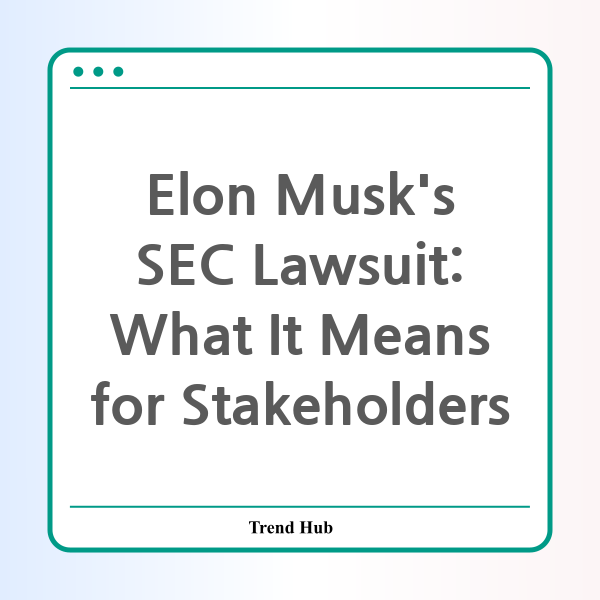* This website participates in the Amazon Affiliate Program and earns from qualifying purchases.

What happens when the world’s richest man clashes with a powerful regulatory agency? The latest showdown between Elon Musk and the SEC may hold significant implications for investors, companies, and the market as a whole. In a shocking move, the SEC has filed a lawsuit against Musk regarding his failure to properly disclose his Twitter stock purchases in 2022, and this event could change the landscape of corporate transparency and regulation.
This lawsuit is not just a routine regulatory action; it is a culmination of years of tension between Musk and the SEC. The allegations state that Musk did not disclose a major stake in Twitter for 11 days while acquiring shares, benefiting from what the SEC describes as "artificially low prices." The agency claims that as a result, Musk underpaid Twitter investors by more than $150 million, impacting those who sold their shares during that time period.
As the SEC intensifies its actions, led by Chair Gary Gensler, the lawsuit signifies a critical moment in the ongoing scrutiny of Musk's financial dealings. Gensler, recognized for his aggressive enforcement of securities laws, is departing soon, placing the future of this lawsuit and its implications in question. With a new administration on the horizon, the possible outcomes may sway based on the incoming SEC chair’s stance on enforcement.
Musk and his legal team have been vocal in denying any wrongdoing, labeling the suit as a "ticky tack complaint" lacking substantial grounds. This rhetoric emphasizes Musk's position that he has not violated any laws. However, the SEC's decision to pursue this lawsuit suggests a belief in the necessity of enforcing regulations designed to protect investors and maintain market integrity.
The context of Musk’s past interactions with the SEC adds layers to this ongoing saga. From his infamous tweets about taking Tesla private to other lawsuits challenging the agency's authority, Musk has consistently framed himself as a victim of what he describes as a politically motivated campaign.
Furthermore, the implications of this case extend beyond Musk. The manner in which the SEC proceeds affects other stakeholders in the market. The SEC typically keeps investigations behind closed doors until formal charges are laid. The transparency surrounding Musk’s case demonstrates a shift in the agency’s approach and may alter investor expectations regarding disclosures in the future.
It's essential to recognize that this lawsuit is not simply about Musk and Twitter—it's about the broader standards of disclosure and the integrity of corporate governance. Investors depend on accurate and timely information to make informed decisions, and incidents like this one highlight the repercussions of lapses in transparency.
As the case unfolds, stakeholders must remain vigilant. The SEC has a responsibility to ensure that market practices are fair and just, while companies need to acknowledge that transparency is not just a regulatory requirement but also a cornerstone of building investor trust. The outcome of this lawsuit may set precedents impacting how corporations disclose their financial dealings moving forward.
In closing, the drama surrounding Elon Musk and the SEC is far from over. Investors and market participants should stay informed about how this lawsuit progresses, as the implications for corporate governance and investor rights will resonate far beyond Wall Street.
* This website participates in the Amazon Affiliate Program and earns from qualifying purchases.